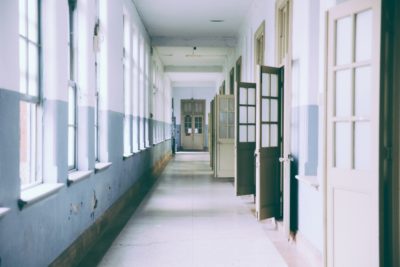
While celebrating its 100th year as an organization of writers and editors, poets and playwrights, PEN America is sounding a blaring alarm over “school book bans” and “educational gag orders” across the United States. The New York-based advocacy organization founded in 1922 has issued two reports that help define forces influencing the politics of 2022 and beyond.
PEN America marked Banned Books Week (Sept. 18-24) with an update to its documentation of instances of books either removed or restricted in school classes or libraries. From July 2021 to June 2022, PEN reported, the U.S. schools experienced more than 2,500 book-ban incidents, involving more than 1,600 book titles and 1,500 authors and illustrators.
Over the 12 months of its survey, PEN observed 16 book bans in 5 school districts in North Carolina — far below the hundreds of bans in such states as Texas, Florida, Tennessee, and Pennsylvania. PEN cited the national Moms for Liberty as “driving efforts” to remove books in several states, including North Carolina, where it has a presence in 12 counties, according to its website.
“Many Americans may conceive of challenges to books in schools in terms of reactive parents, or those simply concerned after thumbing through a paperback in their child’s knapsack or hearing a surprising question about a novel raised by their child at the dinner table,” says the PEN report. “However, the large majority of book bans underway today are not spontaneous, organic expressions of citizen concern. Rather, they reflect the work of a growing number of advocacy organizations that have made demanding censorship of certain books and ideas in schools part of their mission.”


In a separate report, PEN America said that proposed “educational gag orders” had increased in number and in severity of punishments. It defined gag orders as legislation to restrict teaching on race, gender, and American history. In 2022, it reported 137 “gag-order” bills were introduced in 36 states — up from 54 bills in 22 states in 2021. Over that two-year period, 19 bills were enacted.
The political climate fostering such legislation, says PEN, is “increasingly undermining the professional discretion of educators and librarians” as well as “disrupting the potential for effective relationships between parents, teachers and administrators that can actually serve to advance student learning and civic engagement.”
As the PEN report points out, legislation to restrict teaching comes almost exclusively from Republican state legislators. (Only one bill, in Arizona, had a Democratic sponsor.) In Washington, state capitals and local school boards, Republicans have argued that their intent is to prevent political and social indoctrination of students. PEN America responds that censorship of books and teaching denies students their First Amendment right to free expression and open inquiry.
North Carolina had a brush with legislation in the 2021 session of the General Assembly that would have prohibited teachers from delivering lessons in which “any individual, solely by virtue of his or her race or sex, should feel discomfort, guilt, anguish, or any other form of psychological distress.”
Democratic Gov. Roy Cooper vetoed it; Republicans did not have enough votes to override. Thus, the constitutional construct of check-and-balances prevailed.
But the prospects for further efforts to remove books and restrict teaching in North Carolina are at stake in legislative, judicial, and school board elections this fall. The divergent education agendas of Democrats and Republicans remain potent within their own partisan coalitions.
Recommended reading



